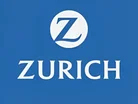Zurich Explores Motor Insurance for Autonomous Vehicles

The rise of autonomous vehicles is transforming the motor insurance sector, prompting insurers to redefine their roles as intermediaries between manufacturers and end-users. As self-driving technology advances, insurers face new challenges and opportunities in liability, risk assessment and coverage models.
Legal framework paves the way
The UK's Automated and Electric Vehicles Act sets a foundation for handling autonomous vehicle insurance claims. The legislation addresses vehicles with high or full automation, aligning with the Society for Automotive Engineers International's six-level classification system.
Legal framework paves the way
The UK's Automated and Electric Vehicles Act sets a foundation for handling autonomous vehicle insurance claims.
The legislation addresses vehicles with high or full automation, aligning with the Society for Automotive Engineers International's six-level classification system.
Under the Act, motor insurers are designated as the primary contact for claims, simplifying the process for injured parties. Insurers can seek compensation from manufacturers if an accident occurs due to a system malfunction in autonomous mode.
Barry Stevens, Senior Technical Underwriter at Zurich Insurance Group, explains:
"It relieves the injured party from having to establish whether it was the driver or the car who was 'driving' at the time of the accident – and if it was the car, subsequently having to pursue a potentially costly and complicated claim against the manufacturer."
A key provision of the Act allows vehicle operators to claim against their insurance policy if they were not physically controlling the vehicle during an accident. This marks a significant shift from previous regulations, which excluded such claims in cases of component failure.
Balancing technology risk and compliance
Autonomous vehicles introduce new responsibilities for owners, particularly in maintaining software updates and ensuring proper operation. The responsibilities bring new risks that insurers must consider when designing policies.
Barry highlights the importance of understanding these risks:
"Brokers should ensure their customers understand the capability of the car they wish to insure and what responsibilities rest with them around safe use of the available technology and keeping any such systems up-to-date and operating effectively."
Insurers are also preparing for emerging threats, such as system malfunctions and cybersecurity risks, which complicate traditional risk assessment.
Business models face disruption
The motor insurance industry is adapting to structural changes as vehicle ownership patterns evolve. Personal Contract Purchase (PCP) agreements are now the dominant method of acquiring vehicles, replacing outright purchases.
The high cost of autonomous vehicles and ongoing requirements for hardware and software upgrades suggest that fleet-based coverage models replace individual policies. Manufacturers could bundle insurance into comprehensive service packages, altering the dynamics between insurers, manufacturers and vehicle users.
Zurich Insurance Group is proactively addressing these changes through autonomous vehicle trials worldwide, aiming to understand emerging risks.
Addressing new and traditional risks
While traditional concerns like theft, weather damage and vandalism persist, the rise of autonomous vehicles introduces new challenges, including the potential for cyber-hacking vehicle systems. Insurers must integrate these emerging risks into coverage offerings, ensuring affordability and accessibility.
Barry Stevens highlights the industry's evolving role: "We see a crucial role for motor insurers as enablers of change and in supporting the adoption and use of autonomous driving technology."
Shaping the future of insurance
The adoption of autonomous vehicles is transforming the motor insurance landscape, necessitating a delicate balance between traditional risks and new technological threats.
With innovative frameworks, proactive risk management and evolving business models, the insurance industry is positioning itself as a key player in the autonomous revolution, ensuring safety and sustainability in the era of self-driving cars.
Stay informed and inspired with the EV Magazine community by signing up for our free weekly newsletter. Each week, receive in your inbox the latest industry news and in-depth insights into the world of electric vehicles, sustainability and cutting-edge innovations.
Don’t miss the opportunity to stay ahead in the fast-evolving EV industry. Subscribe here (link: https://email.evmagazine.com/k/Bizclik-Media/ev_newsletter_signup_form)
EV Magazine is a BizClik brand


